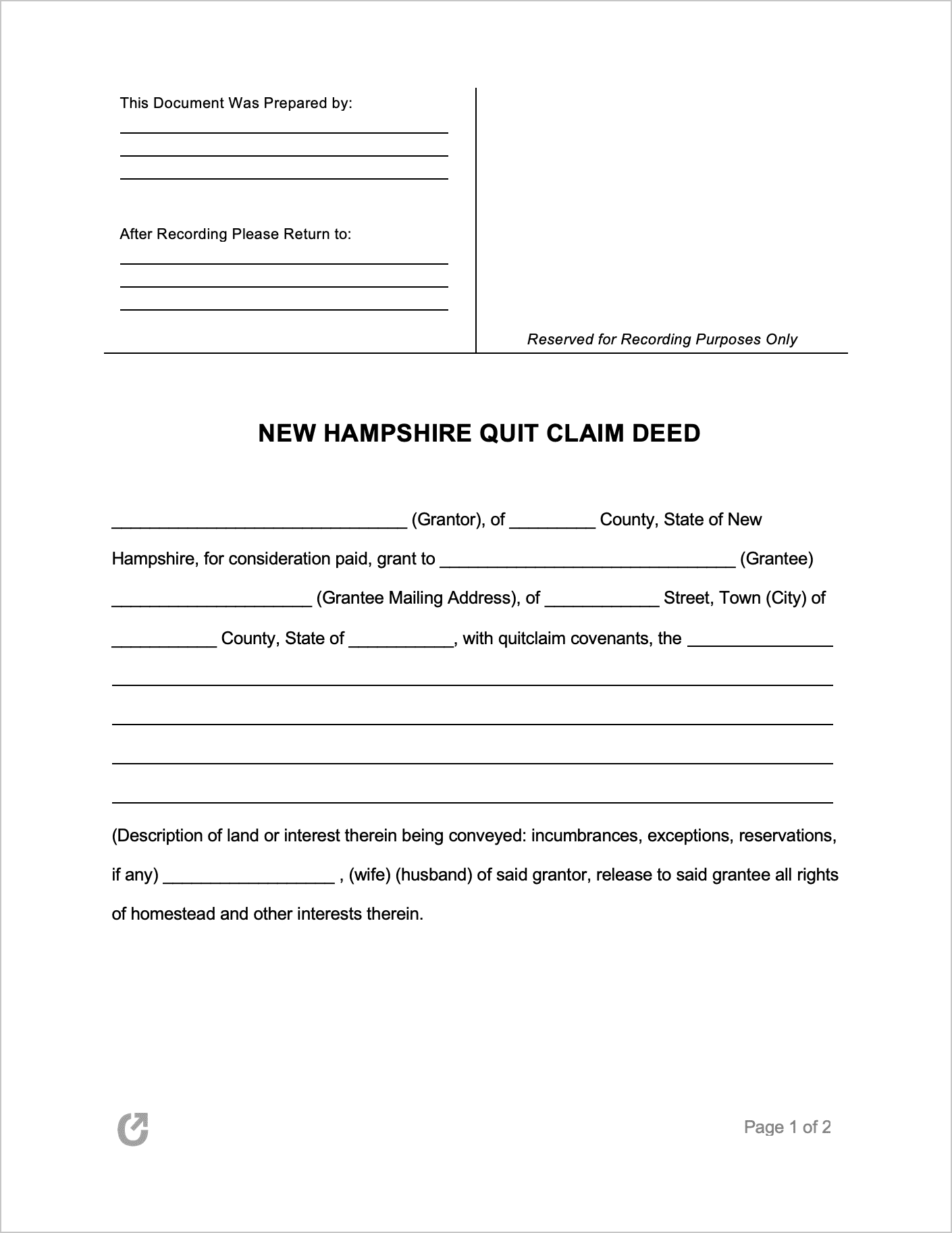New Hampshire Quit Claim Deed Form
A New Hampshire Quit Claim Deed is a legal form that allows for property transfers to be processed in the quickest possible manner when compared to other deed-types. In order to make use of the form, the title of the property should already be clear to the grantee (the individual receiving the property). This is because the deed is absent of any title guarantees on behalf of the grantor (the individual handing over their property interest). Because of this, it is most commonly used in situations in which the grantor and grantee know and trust each other, such as the transfer of property by way of a divorce settlement, through a will, or a gift from one family member to another.
Download: Adobe PDF, MS Word (.docx)
Laws: § 477:28 “Statutory Form of Quitclaim Deed”
Requirements
Grantee’s address (§ 477:3): It is a legal requirement for the form to state the Grantee’s address.
Signing requirements (§ 477:3): The form must be signed by the Grantor and acknowledged before one (1) of the following qualified parties:
- A justice,
- A Notary Public (most common), or
- A commissioner.
Inventory of Property Transfer Form: The property transfer form must be completed by the Grantee a maximum of thirty (30) days from when the deed is recorded or from the date of the transfer (whichever is later).
Download: Inventory of Property Transfer (Form PA-34).pdf
How to File
To put the deed into effect, the following actions must be completed:
- The deed must be filed with the Registry of Deeds in the same county jurisdiction as where the real estate is situated,
- Recording fees must be paid (as set out in § 478:17-g), and
- Form PA-34 must be filed by the Grantee within a set time period (see above).
While there is no set time period for the deed to be recorded, it is highly recommended that the recording is made immediately after the form is completed. This is recommended because New Hampshire follows a type of recording statute called a “notice recording statute.”
